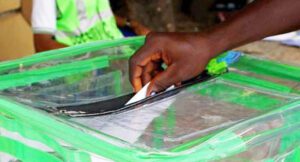Debt burden: An economic threat that should not be ignored
Warnings over hard and soft threats portending dangers against the Country, Nigeria, have remained loudly pronounced. One subject with recurring reflections among these, is the depressing debt burden of the Country. However, in as much as the threat may be perceived as soft, particularly from the government, it is indisputable that it has, in no small measure, contributed as a factor to the sprouting of certain deformities constituting threats, which in their weight of impacts, are hard not only on the economy, but also on the social and political fabrics of the Country.
However, regardless of the incessant outcries with concerns over the threats against the fortune of the Country with rising debt stocks, the posture of the Government to debt as mere soft threat, has left the Government in a position where resort to more borrowings is closely a common feature. Recently, rising debt profile has seen the Country’s revenue, at an alarming profile of over 90 percent, going largely into debt servicing.
Reports have shown the total borrowing of the Federal Government from the Central Bank of Nigeria through Ways and Means Advances rose from N17.46trillion as of December 2021 to N19.01trillion as of April 2022. According to data from the CBN, this represents an increase of N1.55trillion within the first four months of 2022. It is important to note the N19.01trillion the Federal Government owes the apex bank do not form a part of Nigeria’s total public debt stock, which stood at N41.60trillion as of March 2022, according to the Debt Management Office (DMO). The public debt stock only includes the debts of the Federal Government of Nigeria, the 36 state governments, and the Federal Capital Territory. Ways and Means Advances is a loan facility through which the CBN finances the government’s budget’s shortfalls. According to Section 38 of the CBN Act, 2007, the apex bank may grant temporary advances to the Federal Government with regard to temporary deficiency of budget revenue at such rate of interest as the bank may determine.
Against warnings from concerned stakeholders, the Federal Government has kept borrowing from the CBN to fund budget deficits, despite notes of its grip to worsen debt profile. Report had revealed the Federal Government paid an interest of no less than N2.03trillion from January 2020 to November 2021 on the loans it got from the CBN through the Ways and Means Advances.
Aside the N19.01trillion through the Ways and Means Advances, the total debt stock of Nigeria, as at March, was projected to hit N45trillion as the DMO had disclosed plans to borrow an additional N6.39trillion to finance the 2022 budget deficit. A document by the Director-General, DMO, Patience Oniha, had explained that the overall deficit in the 2022 budget was N6.30tn, representing 3.46 per cent of the country’s Gross Domestic Product. According to Oniha, the budget deficit was to be financed mainly by borrowings from both domestic and foreign sources, as well as privatisation proceeds. “N2.57trillion will come from domestic sources, N2.57trillion from foreign sources, N1.16trillion from multilateral and bilateral loan drawdowns and N90.7billion from privatisation proceeds,” the document had read partly. It was added that debt service in the 2022 budget was N3.6trillion, making it 21percent of total expenditure and 34percent of total revenue.
The depth of the deformities which the depressing weight of heavy debt burden have to portend may have far-reaching impacts than what the Government may perceive. The consideration of the warnings over the threats as mere soft expression, has informed increasing resort to borrowings. While arguments that borrowings bear their profitability to run the economy for a trajectory of growth has been put forth and cannot be annulled, it is important to note that just as loans could bear such reflections, they could also lead the economy into shambles with strains whose threats may transcend the scope of economic fabrics. This becomes so when they are consistently largely misapplied and/or mismanaged.
It is pertinent for the Government to redefine its orientation, not only to borrowings, but also, the utilisation and application of same. The expression of worries over the increasing borrowings of the Government building-up heavy debt burden is not an outcry that is out of course, particularly when the tangible impacts of same in a long run have not been felt over the years. Critical evaluation of the irreconcilable differences between the enormity of borrowings and the deficits of its impacts on the economy calls for concern. Since the expression would reflect the inclination of misapplication, mismanagement, and maladministration, among other deformities, refining the orientation of borrowings and it’s application is a call the Government cannot shy away from, if the Country would not end up in economic crises worsened by debt burden.




